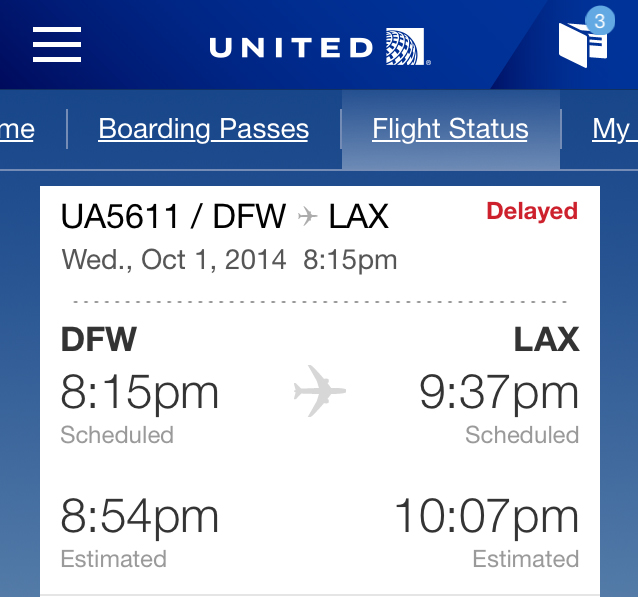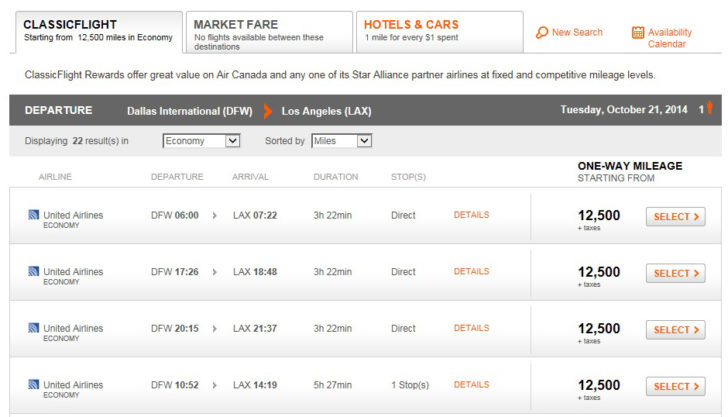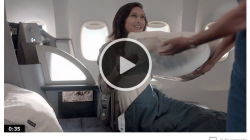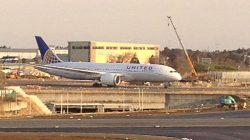
From the desk of the Devil’s Advocate…
I’m on a United flight from Dallas to Los Angeles as I write this and we’re running an hour late. Which of course means some complaining is in order, right? I mean, I have to get up early tomorrow, and now thanks to this delay it’ll be close to midnight before I climb into my comfy bed.
Except I’m not going to complain. Instead, I’m grateful.
It’s easy to hate on airlines because flying has become such a routine form of travel for the masses that it often does feel like bus service. It’s not usually a luxurious experience, which is what makes flying on miles in a premium cabin so special.
But while I’m certainly no United apologist, it’s not a simple matter to run a huge airline where any one of a thousand variables can go wrong and cause a problem. Yet somehow thousands of flights a day safely end up where they’re supposed to go.
We take for granted the many ways that United, and most of the airline industry, have actually tried to improve customer service, especially through technology. So today I’m writing about a couple things that United and the other airlines are doing right. Yes, it’s far from everything, but it’s often more than we realize.
The old days of being late.
I’m late tonight because the flight inbound to Dallas from Chicago got in late. That’s because the previous flight to Chicago from DC was late, and if I bothered to look it up I’d likely find that the flight to DC before that was late too.
Sounds like the usual domino delay, right? But 20 years ago, the only way I would have discovered my flight was late was when I checked the departure boards at the airport. Maybe I could have found out with a phone call to the airline, but more likely than not they would have told me everything was fine and come on down. So I would have arrived at the airport and waited around.
Things were slightly better 10 years ago because I could look up my flight status online. But at the time, that would have required both being near a computer and my AOL dialup to be working, which was a dubious proposition to say the least. Internet access may be ubiquitous nowadays, but in 2004 I was still using an awesome flip cell phone that allowed you to — ready for this? — call people from anywhere. Let me tell you, it was sweet. Oh, and there was also some sort of function where you could send short written “text” messages to other people who also had awesome flip phones. But only folks in Japan were into that craziness.
That brings us to tonight. I was having dinner with my girlfriend, who lives in Dallas and who I don’t get to spend enough time with as a result. My phone buzzed me. I looked at it — it was United’s app letting me know my flight was going to be late.
And just like that, I got to spend an extra hour with my girlfriend.
“So what?” sniff the Conventional Wisdomers. “That’s nothing special. All the major airlines do it.” I agree, it’s nothing special about United. But it’s special because it saved me from wasting an hour of my life sitting alone at DFW airport.
The first time I got an automated call from Delta informing me that my flight had been cancelled but I had already been rebooked on another flight, I was pretty blown away. Today it happens and I don’t think twice about it. Nowadays we all expect to be immediately informed by our airline when there’s a problem on the horizon. But do Greyhound or Amtrak do that for you?
Booking seamlessly across multiple systems.
Back up a few weeks to when I booked this United flight. I wanted to use AmEx Membership Rewards points for the booking since I’ve got a bunch of them, but United isn’t a transfer partner. So instead I transferred 12,500 points to Aeroplan. The points arrived in my Aeroplan account instantly, then I used their website to book the United flight. No big deal.
Just stop and think about that for a moment.
In about 10 minutes, I was able to use points that can’t transfer to United to book a United flight through an alliance partner, paid no fuel surcharges or extra fees (not even a close-in booking fee), and did it all from the comfort of my home without once speaking to another person. Once I got the reservation locator, I was even able to add my United frequent flyer number to the ticket and have it all connected to my United account as if I had booked it right there.
Again, we take it for granted, but it’s not simple to make all that work. Having all those systems — United, Aeroplan, and American Express — be able to talk with each other and pass along information instantly and accurately is a real feat. Yet I’m so used to it that I simply expected it to work.
Now I’ll be the first to say it doesn’t always work that easily. There’s still bugs and it can be annoying when a flight you know should be available isn’t showing up on a partner airline’s website (yes, British Airways, that’s my icy glare you’re feeling). On occasion we might have to make an actual phone call, as I recently did when American’s website refused to book a connection I wanted at anything less than double the expected price.
So I called… and American solved it. They even waived the phone booking fee without me asking. They acknowledged the website was pricing it wrong and made things right. Having well trained and helpful agents who know how things are supposed to work is something that American, in my experience, happens to be doing pretty well nowadays. (We’ll see how things go when the US Airways agents officially join up with them.)
The Devil’s Advocate says appreciate the airlines for their improvements.
I realize this column sounds like a PR piece for the airlines. Most of you are likely thinking that the only thing missing is hearing it read aloud by Donald Sutherland.
So let me make it clear that I believe the airlines still have a great deal of room for improvement, especially in the area of communication. When I did arrive at the gate tonight, not a single gate announcement was made until the boarding process started, despite the fact that the inbound aircraft hadn’t even arrived yet with only 20 minutes to go until our already delayed departure time. (We did eventually get out just a few minutes after the announced delay, so kudos for that as well.)
The airlines also seem to constantly feel the need to try and sneak things by us. It’s literally become a rule of thumb that an “enhancement” to a program or service actually means a devaluation. Maybe the regular guy believes that, but most of us would prefer if you just honestly said (with a reasonable amount of advance notice) that the business climate has improved and fewer empty seats are available, so you need to adjust your program accordingly. Why do you have to pretend you’re making things better when you’re not?
Let me also note that the recent attempts by the airlines to lobby Congress to make taxes a separate (read: hidden) part of the advertised fare are totally unconscionable. It’s those kinds of deceptions that put airlines near the bottom of customer satisfaction rankings, and they deserve to stay there as long as they’re pulling stunts like that.
But I appreciate the fact that I could book my flight with such flexibility and for almost nothing. I appreciate that I didn’t sit around the airport waiting to find out when my flight would leave. I appreciate that I got to spend an extra hour together with my girlfriend.
So thank you, United. I know we demand a lot. I’ll give you some credit where credit is due. Just keep working on it, okay?
Devil’s Advocate is a weekly series that deliberately argues a contrarian view on travel and loyalty programs. Sometimes the Devil’s Advocate truly believes in the counterargument. Other times he takes the opposing position just to see if the original argument holds water. But his main objective is to engage in friendly debate with the miles and points community to determine if today’s conventional wisdom is valid. You can suggest future topics by sending an email to dvlsadvcate@gmail.com.







